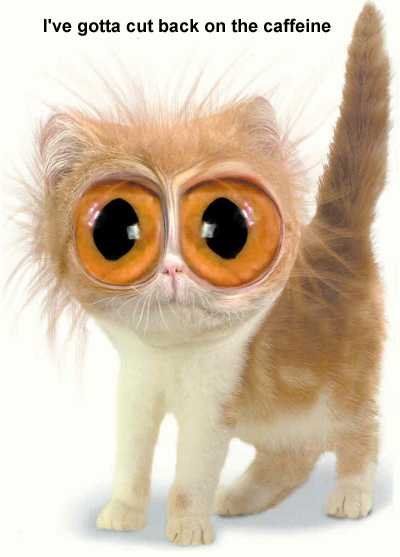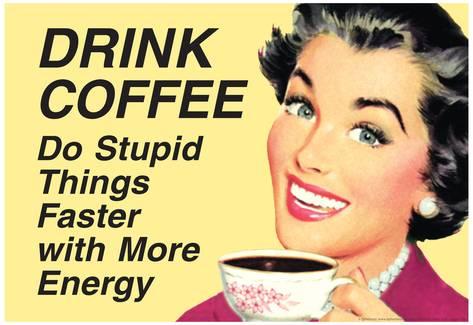
You are what you eat. I know we’ve all heard that many times in our life. But in a very simple way, it’s true. If we eat healthy foods that are good for our bodies, we feel better. We feel healthy. And if we eat unhealthy junk foods, you know how that feels too. You know how it feels to be up one minute feeling great after eating some ice cream or a candy bar, only to drop like a rock 20 minutes later and wanting nothing more than another ice cream to pick you back up. Not good. If you wish to permanently learn to eliminate unhealthy stress and anxiety levels, examining and then changing your dietary habits can be like a homerun for your mental and physical health.
Years of research have proven that when we stimulate our bodies with certain foods or drugs, there is always an equally opposite reaction to the initial ‘buzz’ we receive upon ingestion. Whether it’s sugar, chocolate, nicotine, caffeine, alcohol, or even illicit street drugs, we always pay the price for our temporary ‘good’ feelings. And that price can many times lead to mental issues such as depression and anxiety.
Today we will cover caffeine. 85% of American adults consume some form of caffeine every day. On average, they consume about 164mg, which is equivalent to about 1 ½ cups of coffee. 75% of those people are physically addicted to the drug. They have to have it. And if they don’t, they will likely feel grouchy, upset, angry, unmotivated, and lethargic. In addition, many people unconsciously drink caffeine everyday through their Pepsi or Coca-cola soft drinks. Receiving the double whammy of both sugar and caffeine, most of these people don’t even realize they are addicted to the caffeine in their soda. And if you don’t believe that caffeine causes mental issues, then ask yourself why the mental health field has now begun to identify and diagnose “caffeine-related disorders.”
How does caffeine cause stress-related mental disorders?
Caffeine can more than double the stress hormones within your body. It triggers the production of cortisol and epinephrine. Epinephrine is secreted by your adrenal glands (adrenalin) and provides you with that energy you feel coursing through your veins after you drink a coffee or energy drink. Your sympathetic nervous system primes you for physical action as your heart rate and blood pressure increase. Even if you were feeling calm and relaxed, the moment you consume caffeine, you are triggering stressful physiological responses within your body, preparing you to either fight or flee. Which is why I call soda, coffee, and energy drinks as nothing more than “liquid stress.”

Caffeine also changes our brain’s chemical balance. It inhibits the calming neurotransmitter in our brain called Gaba-Aminobutyric Acid (GABA), thereby reducing the overall amount of GABA we have in our body. This is a problem because GABA is essential for feeling relaxed and happy, as it puts the brakes on our brain to slow down and relax when it’s time to rest. Lower levels of GABA are associated with higher levels of anxiety and panic attacks.
Caffeine causes panic attacks
That’s right, caffeine can cause panic attacks! If you’ve ever had a panic attack, you know they’re not fun. They’re highly stressful and may seem to come out of nowhere. The unfortunate part is that many times when they are caused by accumulated stress and caffeine consumption, we instead mistakenly associate the activity we were involved in as the ‘cause’ for the panic attack. Take driving, for example. Imagine that you’ve just drank four cups of coffee to stay awake for a long drive up the I-5 or the 99, and all that caffeine triggers a panic attack on the road. You may then associate that “when I drive on the freeway I get panic attacks.” This could cause major problems for you now, because you believe that the reason for your panic attack was the act of driving on the freeway. You may begin to avoid and even fear driving on the freeway in the future. But in reality, your panic attack was triggered by the excessive amount of caffeine you consumed. Stress and anxiety cause to think irrationally about the world around us. I’m sure you can see how problematic this can be.
If you’d like to view a study that proves caffeine causes panic attacks, take a look at this.After a 480 mg dose of caffeine was given to subjects, 61% of them experienced not just anxiety, but a full blown panic attack. In the group given the caffeine-free placebo, none of them experienced a panic attack.
Arguably even worse than the panic attacks, long-term caffeine use has been shown to decrease overall levels of serotonin within your body. Low serotonin is associated with depressive mood states. Not only can the anxiety and stress be immediately problematic if you consume caffeine, but regular users are more likely to become depressed in the long run. A report from Kansas State University notes that the long-term effect of caffeine (four hours after consumption) is depression. Not only does caffeine decrease your serotonin levels, but in the short term it also lowers your blood sugar levels which leaves you feeling unsure of yourself and low in energy, which of course can lead to further stress, anxiety, and depression. It’s a rough cycle to go through and most people don’t realize the rollercoaster they are on until they spend at least a week without caffeine.
We don’t need caffeine
Caffeine addiction is rampant in our society and causes stress, anxiety, and depression. It’s so ingrained in our culture that the connection between caffeine and stress is invisible. People just don’t see it. Or they don’t want to see it. It’s added to so many of our refreshments, foods and drinks, that people simply don’t realize how much they consume.
If you suffer from stress and anxiety, think about how much better your life could be if those uncomfortable feelings were gone. Think about how much more relaxed you could be. Think about all the things you could do without your anxiety, stress, insecurities, and fear holding your back. I want you to strongly consider cutting back or even eliminating caffeine from your diet altogether.
If you need help withdrawing from caffeine, reducing your anxiety, or simply have questions for me, I’d love to hear from you. Comment below or give me a call.
Make it a great day!
-Mr. Banks